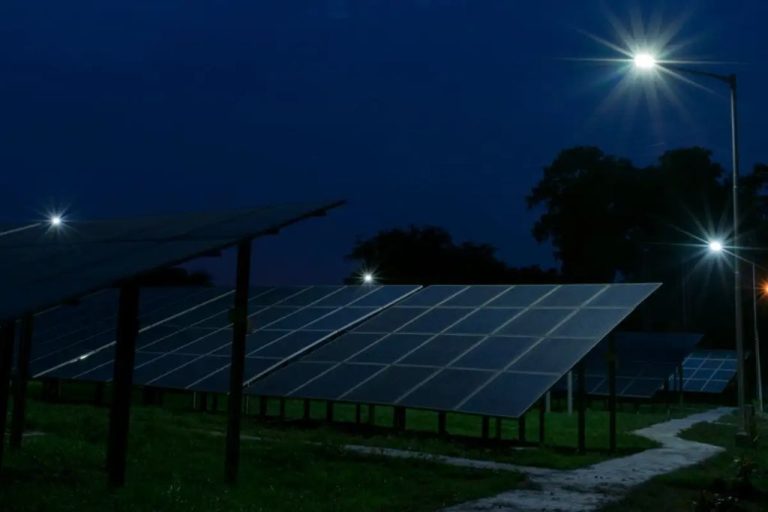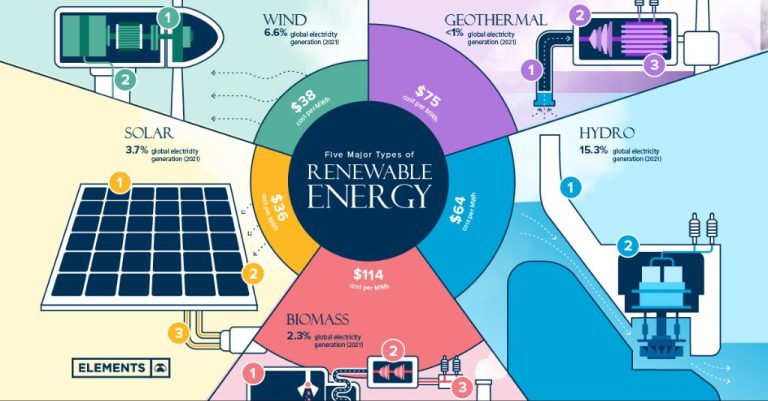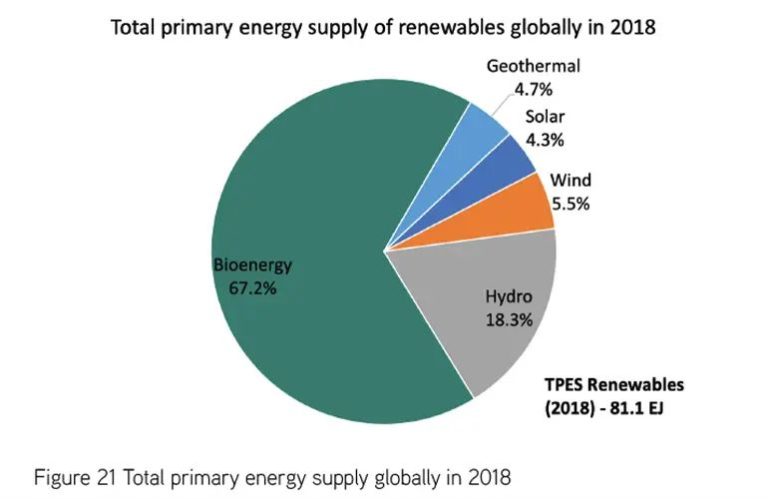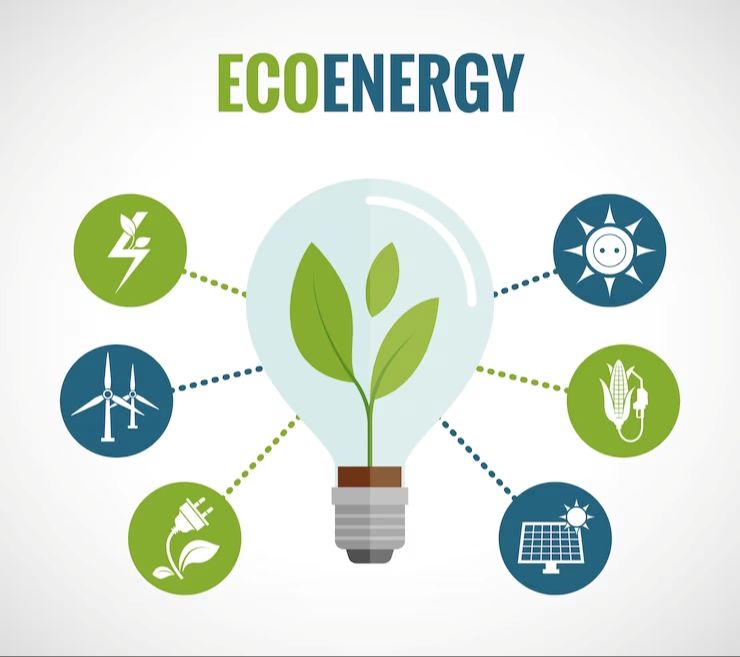Is Renewable Energy A Good Career?

Renewable energy careers involve working in the renewable energy industry, which includes solar, wind, hydroelectric, geothermal, and biomass energy sources. The renewable energy industry has seen tremendous growth in recent years as countries shift away from fossil fuels. According to Global Renewable Energy Market Report, the global renewable energy market size was valued at USD 856.08 billion in 2021 and is projected to grow at a compound annual growth rate (CAGR) of 8.9% from 2022 to 2030.
Types of Jobs
Some of the major types of renewable energy jobs include:
Solar – Jobs in the solar industry involve designing, installing, and maintaining solar photovoltaic systems on homes and commercial buildings. Common solar jobs include solar PV installers, solar sales representatives, solar engineers, and solar technicians. (https://successatschool.org/advice/jobs-in-renewable-energy/900)
Wind – Wind energy jobs involve building and maintaining wind turbines and wind farms. Some examples are wind turbine technicians, wind energy engineers, wind farm managers, and wind energy technicians. (https://www.primaryservices.com/renewable-energy-jobs/)
Geothermal – Geothermal jobs involve harnessing the Earth’s internal heat to generate electricity. Positions include geothermal technicians, geothermal engineers, geothermal drilling specialists, and geothermal plant operators. (https://www.ziprecruiter.com/t/Most-Popular-Types-Of-Renewable-Energy-Jobs)
Hydroelectric – Jobs in hydroelectric power work on dams and reservoirs to generate electricity from flowing water. Roles include hydroelectric plant technicians, turbine mechanics, hydroelectric maintenance technicians, and reservoir engineers. (https://successatschool.org/advice/jobs-in-renewable-energy/900)
Biomass – Biomass energy utilizes organic matter like crops, wood, or waste to produce electricity. Related jobs are biomass plant technicians, biomass engineers, agricultural residue collectors, and biomass gasifiers. (https://www.ziprecruiter.com/t/Most-Popular-Types-Of-Renewable-Energy-Jobs)
Green Construction – Green construction jobs involve building energy efficient, environmentally friendly buildings and infrastructure. Positions include green architects, LEED consultants, green construction managers, and green building engineers. (https://www.primaryservices.com/renewable-energy-jobs/)
Job Growth
The renewable energy industry is experiencing rapid job growth as investments pour into clean energy and new capacity comes online. According to the 2022 U.S. Energy and Employment Report, jobs in clean energy outnumber fossil fuel jobs nearly 3 to 1, with over 3 million Americans working in renewable energy. 1
Projections indicate strong continued growth in renewable energy jobs. The International Renewable Energy Agency forecasts global renewable energy jobs will reach 38 million by 2030 under a sustainable pathway, increasing from 11.5 million in 2019. 2 This is driven by massive new investments and capacity coming online. The world added a record 304 gigawatts of renewable power capacity in 2021, equivalent to the entire electricity demand of Europe. 3 As countries and companies transition to renewable energy, job growth is poised to accelerate further.
Salaries
Renewable energy jobs tend to pay well compared to similar roles in other industries. According to TheSalaryProject, the average salary for a Renewable Energy System Finance Specialist is $70,090 per year or $34 per hour. The top 10% in this role make over $122,020 annually.
Engineering roles also command high salaries. CareerSideKick states that the average salary for a Renewable Energy Engineer is around $80,084 per year, though this can vary based on specialization. This is comparable to similar engineering positions in oil, gas, and other traditional energy sectors.
Jobs on the technical side, like wind turbine technicians, solar photovoltaic installers, and energy auditors have average salaries in the $40,000 – $55,000 range according to the U.S. Bureau of Labor Statistics. While slightly lower than engineering roles, these are still good salaries that tend to exceed median pay.
Overall, renewable energy offers ample high-paying opportunities across many occupations. The strong growth in the industry promises continued salary competitiveness for in-demand green jobs.
Education
Most jobs in the renewable energy industry require some level of postsecondary education. Many technical positions require at least an associate’s degree or certificate in a field like engineering technology or environmental science (Vault). For engineering and scientific roles, a bachelor’s degree in electrical engineering, environmental science, physics, or mathematics is usually needed (National University).
Some positions, like wind turbine technicians, can be entered through apprenticeship programs that combine classroom learning with on-the-job training. Certification is also available through groups like the North American Board of Certified Energy Practitioners, and can demonstrate specialized skills for certain renewable energy jobs.
Work Environment
The work environment for renewable energy jobs varies greatly depending on the specific role. Many jobs in wind and solar energy are primarily field-based, requiring travel to project sites for construction, operation, and maintenance of equipment (source). Workers in these roles need to be comfortable working outdoors and may be required to work at heights or in inclement weather conditions.
There are also many office-based jobs in areas like engineering, project development, sales, and corporate management. These positions involve primarily working in an office setting with occasional travel to visit project sites or attend conferences and events. Some roles, like sales and business development, require frequent travel to meet with clients and pitch proposals.
In general, most positions in the renewable energy industry involve at least some travel, though the amount varies. Field technicians can expect to be on the road up to 50% of the time visiting installations across a region, while an engineer may only travel occasionally. Some management and administrative roles may require little to no travel at all.
Job Satisfaction
Many people pursuing careers in renewable energy are motivated by the opportunity to do meaningful and purpose-driven work. The renewable energy field allows professionals to contribute directly to combating climate change and building a more sustainable future (Lillian Eyre, https://immaculata.academia.edu/LillianEyre). This sense of purpose often leads to high job satisfaction.
Renewable energy careers also tend to offer good work-life balance. Most positions are full-time rather than requiring extensive overtime or travel. The regular hours and ability to “unplug” after work enables renewable energy workers to spend time with family and on hobbies they enjoy.
Challenges
There are several common challenges encountered by those working in renewable energy careers. The industry is highly competitive, as more people seek jobs in this growing field. The industry is also rapidly evolving, so renewable energy experts must constantly learn about new technologies and developments. Some other challenges include:
– Tough competition. There is high demand for skilled workers, but also a lot of competition from other qualified applicants. This can make it challenging for new graduates or career changers to break into the field at first.
– Dynamic industry changes. The renewable energy sector is fast-moving and demands that workers stay on top of the latest technologies and policy shifts. It can be difficult to keep pace with the rate of changes.
While the work can be demanding, many renewable energy professionals find it rewarding to be part of a mission-driven industry focused on sustainability and reducing environmental impacts.(Source)
Future Outlook
The future looks bright for renewable energy jobs. According to the U.S. Bureau of Labor Statistics, employment of solar photovoltaic installers is projected to grow 51% from 2019 to 2029, much faster than the average for all occupations. Wind turbine service technicians are also expected to grow rapidly at 57% as more wind farms are constructed. Jobs in solar and wind are expected to grow as government policies continue to incentivize and mandate renewable energy generation. For example, California passed legislation requiring 100% carbon-free electricity by 2045. This will drive future jobs growth in the state.
The outlook remains positive but depends somewhat on government policy. Some states have begun reducing renewable energy incentives which could slow down growth. But overall, demand for renewable energy continues to be strong. Corporations are committing to 100% renewable energy to meet sustainability goals. Homeowners are adopting more rooftop solar. Global investment in renewables hit record levels in 2021. As long as policies continue supporting renewables and costs keep declining, strong growth is expected for renewable energy jobs.
Sources:
https://www.bls.gov/ooh/fastest-growing.htm
https://www.energy.ca.gov/news/2022-04/california-plans-achieve-100-percent-clean-electricity-2045
Conclusion
The renewable energy field has seen rapid growth in the past decade and is projected to continue growing as countries around the world seek to reduce their dependence on fossil fuels and transition to cleaner energy sources. Key points made in this article include:
- Many types of good-paying jobs are available in renewable energy, including solar panel installers, wind turbine technicians, engineering roles, project managers, and more.
- Job growth is expected to be strong for renewable energy roles over the next decade, with some occupations projected to grow over 60%.
- Salaries are competitive with many jobs paying $50,000 – $80,000 per year.
- Most occupations require some technical training or an associate’s degree, making renewable energy an accessible field.
- The work offers variety, the ability to work on emerging technologies, and satisfaction from promoting clean energy.
- The main challenges are that some jobs require working outside or at heights.
Given the positive employment outlook, good salaries, accessible education requirements and ability to work in a growing industry promoting environmental sustainability, renewable energy appears to be an excellent career choice for the future.







